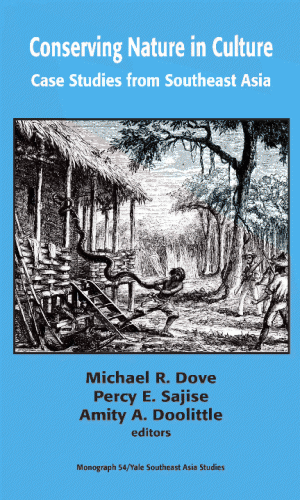Conserving Nature in Culture
Conserving Nature in Culture

The thesis that underpins this volume is that the principal conservation paradigm has been flawed in the way that it construes the relationship between local communities and their environments. The contributors to this volume reverse the popular problematic that assigns responsibility for environmental degradation to proximate communities and asks how the global conservation community can help these communities to reform. Instead, the contributors first ask what local communities are already doing that contributes to environmental conservation and then ask how the global community can avoid undermining these efforts and perhaps even support them. This reversal elides the popular but pernicious dichotomization of conservation and development; it also elides the related and equally pernicious dichotomization of nature and culture (much of the volume, for example, is devoted to assessing the way that biodiversity is conserved on everyday agricultural landscapes).
In documenting the way that many societies conserve resources in the course of everyday activities, the contributions to this volume question formal, state-led conservation interventions, the planned character of which itself reintroduces and is often doomed by the vision of a dichotomy between society and environment. Finally, the contributions to this volume show how the views of Northern and Southern scholars, of natural scientists and social scientists, can converge on many of these issues but still differ. This analytic diversity, these multiple voices, is no less important to valorize and conserve than diversity in nature.
Introduction by Michael R. Dove.
Contributors : Oekan S. Abdoellah, Michael R. Dove, David Frossard, Budhi Gunawan, Parikesit, Rajindra K. Puri, Percy Sajise, Mariliza Ticsay, Lye Tuck-Po, Dante Vergara
>> click here to view full Table of Contents, Contributors, and Preface
Cover design by MetaGlyfix
368pp,Paper $27.00; ISBN 0938692-82-8; *Cloth $38.00; ISBN 0938692-83-6
See Yale Southeast Asia Studies Monographs for Ordering Information and other available books.
*Cloth bindings are library serial version: no jacket, no cover photo; blank with foil stamp on spine.
Paperback includes cover design & photo
Yale Southeast Asia Studies is a non-profit publishing entity at Yale University.
